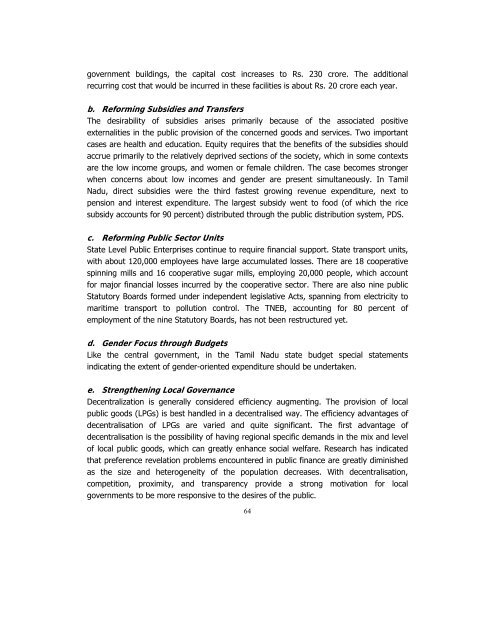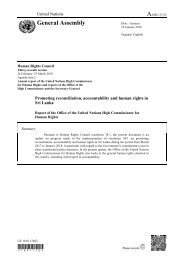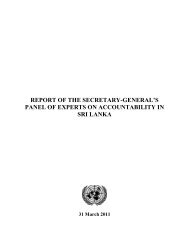POVERTY REDUCTION STRATEGY TN
You also want an ePaper? Increase the reach of your titles
YUMPU automatically turns print PDFs into web optimized ePapers that Google loves.
government buildings, the capital cost increases to Rs. 230 crore. The additional<br />
recurring cost that would be incurred in these facilities is about Rs. 20 crore each year.<br />
b. Reforming Subsidies and Transfers<br />
The desirability of subsidies arises primarily because of the associated positive<br />
externalities in the public provision of the concerned goods and services. Two important<br />
cases are health and education. Equity requires that the benefits of the subsidies should<br />
accrue primarily to the relatively deprived sections of the society, which in some contexts<br />
are the low income groups, and women or female children. The case becomes stronger<br />
when concerns about low incomes and gender are present simultaneously. In Tamil<br />
Nadu, direct subsidies were the third fastest growing revenue expenditure, next to<br />
pension and interest expenditure. The largest subsidy went to food (of which the rice<br />
subsidy accounts for 90 percent) distributed through the public distribution system, PDS.<br />
c. Reforming Public Sector Units<br />
State Level Public Enterprises continue to require financial support. State transport units,<br />
with about 120,000 employees have large accumulated losses. There are 18 cooperative<br />
spinning mills and 16 cooperative sugar mills, employing 20,000 people, which account<br />
for major financial losses incurred by the cooperative sector. There are also nine public<br />
Statutory Boards formed under independent legislative Acts, spanning from electricity to<br />
maritime transport to pollution control. The <strong>TN</strong>EB, accounting for 80 percent of<br />
employment of the nine Statutory Boards, has not been restructured yet.<br />
d. Gender Focus through Budgets<br />
Like the central government, in the Tamil Nadu state budget special statements<br />
indicating the extent of gender-oriented expenditure should be undertaken.<br />
e. Strengthening Local Governance<br />
Decentralization is generally considered efficiency augmenting. The provision of local<br />
public goods (LPGs) is best handled in a decentralised way. The efficiency advantages of<br />
decentralisation of LPGs are varied and quite significant. The first advantage of<br />
decentralisation is the possibility of having regional specific demands in the mix and level<br />
of local public goods, which can greatly enhance social welfare. Research has indicated<br />
that preference revelation problems encountered in public finance are greatly diminished<br />
as the size and heterogeneity of the population decreases. With decentralisation,<br />
competition, proximity, and transparency provide a strong motivation for local<br />
governments to be more responsive to the desires of the public.<br />
64

















